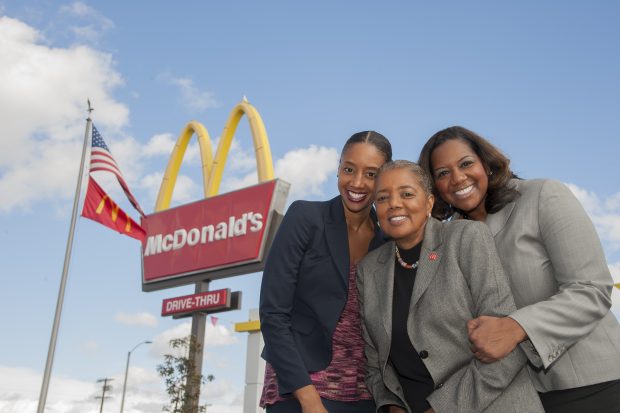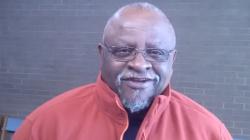[ad_1]
Black entrepreneurs have long turned to franchising as a way to launch businesses, build assets, and create jobs where they operate. In recent years, Black franchise owners have used the prototype business model to become owners of franchises including 7-Eleven, Smoothie King, Amago Cleaning Systems, FastSigns, Midas, and the UPS Store to name a few.
U.S Census Bureau data showed that 30.8% of franchise businesses in 2012 were owned by minorities, up from 20.5% in 2007. Contrarily, only 18.8% of businesses not franchised were owned by minorities in 2012. The problem is the information was last compiled seven years ago; and new data is now being sought that could potentially help boost the number of franchises owned by blacks, women, and other minority groups.
To help make that happen, Rep. Alma S. Adams, (D-NC) is pushing a letter, signed by 57 bipartisan members of Congress, asking the Census Bureau to boost its data collection to improve research on minority and women business ownership of franchises. Richard Hudson, (R-NC) is the lead Republican cosigner on the letter.
Over the past decade, Congresswoman Adams claims franchises have increasingly offered entrepreneurs an opportunity to enter the business without the full amount of risk, especially for women and minorities who face greater barriers to entry.
Nailing Down Data on Black Franchise Owners
This year, the Census Bureau is moving to an annual survey – the American Business Survey (ABS) – to measure business owner characteristics, Adams says. But the survey does not include key questions about diversity in franchise ownership.
“More accurate data could be used to help researchers and policymakers as we work to promote economic growth within under served communities.” Adams said. She added that the data could help show the success rate and ownership rate for minority and women franchise owners as they try to gain capital to start or expand their businesses.
“The percentage of women and minority-owned businesses has increased by 50% over the last decade. In my district alone, roughly 600 of the 2,000 franchise businesses are women- and minority-owned. In fact, franchises in the 12th District represent 42,300 jobs and $1.8 billion in wages. That is why I am pushing for the Census Bureau to conduct more frequent research and data collection on women and minority-owned small businesses,” Adams stated.
“Proper data and research will allow us to better serve these businesses, ensuring they have the tools and resources they need to not only survive but to thrive. I applaud my colleagues for joining me in this push, and I remain committed to fighting for North Carolina’s small businesses and economy.”
An Enormous Industry
The letter, sent to U.S Census Bureau Director Steven Dillingham also states: “Overall, existing data shows franchising is increasing the number of opportunities for minorities to own their own business. While this data expresses positive changes in increased diversity of U.S. business owners, it does not represent current data because that data is not available.”
“If the Census was to query this data at a higher frequency – whether, through the SBO, the Annual Survey of Entrepreneurs, or another existing product – data on women and minority-owned franchises could be used to better track diversity trends in franchise business ownership.”
The franchising industry is enormous. Around 226,000 franchise small businesses are minority-owned, the International Franchise Association (IFA) reported based on Census data. All told, the nation’s 733,000 franchise businesses employ about 8 million Americans and provide over $400 billion to U.S. GDP.
Broken down by race, firms run by blacks have posted the biggest gain in the percentage of businesses operated as a franchise within the minority, ethnic, and gender groups. Those black-owned firms grew to 4.8% in 2012, up roughly 66% from 2.9% from 2007.
More figures from the U.S. Census Bureau’s Survey of Business Owners revealed astounding growth in black franchise owners. That data showed 40,588 businesses were operated as franchises for all or part of their businesses by blacks in 2012, up from just 15,087 as franchises run by blacks in 2007.
Pathway to Prosperity
IFA, the industry’s largest trade group, lauded the congressional group’s work. The organization recognized the effort by Adams and Hudson.
“Franchising has long been a pathway to prosperity for minorities, women, and those from historically underserved backgrounds. With better data collection and understanding of ownership trends, Congress and businesses can work together to make business ownership a reality for even more Americans,” stated IFA senior vice president of Government Relations and Public Affairs Matt Haller.
“The franchise community is grateful for the leadership of Reps. Adams, Hudson, and many other members of Congress for their work to encourage and develop minority business ownership.”
Several black legislators were among those who signed the letter.
In Case You Missed It:
[ad_2]
Source link


